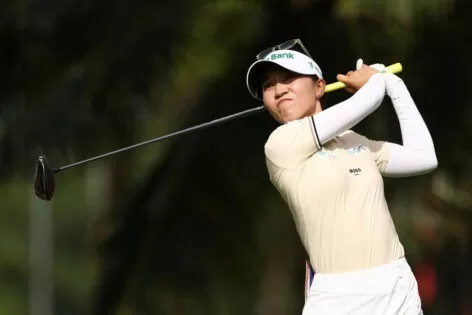Golf has long been considered a sport of privilege, with its expensive equipment, exclusive country clubs, and high entry fees. But beyond the surface level of wealth and luxury, golf has also served as a window into larger social inequalities, particularly when it comes to gender.
The gender wage disparity in golf is a stark illustration of this. While the sport has seen significant growth in recent years, with record-breaking prize money and increased media coverage, the gap between male and female earnings remains a glaring issue.
Athletes from a variety of sports have brought attention to the unfair treatment of female opponents, from the U.S. Women’s National Soccer Team’s legal struggles for equal compensation to the ongoing fight for equal pay in tennis. And now, the world of golf is also facing scrutiny for its unequal treatment of female players.
One of the most prominent voices in this conversation is that of Lydia Ko, the former world number one and two-time major champion. Despite her impressive achievements on the course, Ko has been vocal about the gender wage gap in golf and the need for change.
In a recent interview, Ko expressed her dissatisfaction with the current state of affairs in women’s golf, stating that she is “not satisfied” with the $131 million prize money on offer in the LPGA Tour. This statement comes as she prepares to compete in the LPGA’s season-ending CME Group Tour Championship, where the winner will take home a record-breaking $1.5 million.
Ko’s comments highlight the stark contrast between the prize money in men’s and women’s golf. The PGA Tour, the men’s equivalent of the LPGA, offers a total prize money of over $400 million, with the winner of the FedEx Cup taking home a staggering $15 million. This huge disparity in earnings is not only unfair but also sends a message that women’s golf is not as valuable or important as men’s.
But Ko is not the only one speaking out against this inequality. Other top female players, including Lexi Thompson and Michelle Wie, have also voiced their concerns and called for change. And it’s not just the players who are pushing for progress. The LPGA’s new commissioner, Mollie Marcoux Samaan, has made it clear that closing the gender pay gap is a top priority for her.
The good news is that steps are being taken to address this issue. The LPGA recently announced a new partnership with the Ladies European Tour, which will see the two tours work together to create more playing opportunities and increase prize money for female golfers. This move is a significant step towards achieving gender equality in the sport and providing female players with the recognition and compensation they deserve.
But there is still a long way to go. The gender wage gap in golf is just one aspect of the larger issue of gender inequality in sports. Women’s golf, like many other female-dominated sports, struggles to receive the same level of media coverage and sponsorship deals as men’s golf. This lack of exposure not only affects the players’ earnings but also limits the growth and popularity of the sport.
It’s time for the golfing world to recognize the value and talent of female players and provide them with the same opportunities and rewards as their male counterparts. As Lydia Ko said, “We’re not asking for anything crazy, just for what we deserve.” And she’s right. Female golfers deserve equal pay, equal recognition, and equal opportunities.
As fans of the sport, we have a responsibility to support and advocate for gender equality in golf. We can do this by watching and attending LPGA events, following female players on social media, and supporting brands that sponsor women’s golf. Together, we can help bridge the gender gap and create a more inclusive and fair playing field for all golfers.
In conclusion, the gender wage disparity in golf is a pressing issue that needs to be addressed. Female players like Lydia Ko are using their platform to bring attention to this issue and push for change. With the support of fans, players, and governing bodies, we can work towards achieving gender equality in golf and creating a more inclusive and fair sport for all. Let’s continue to raise our voices and demand equal treatment for female golfers.

